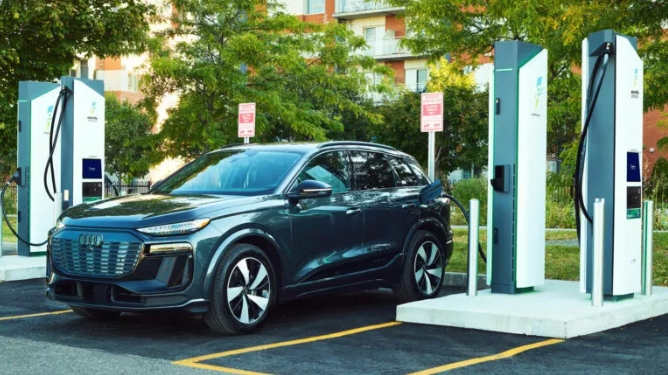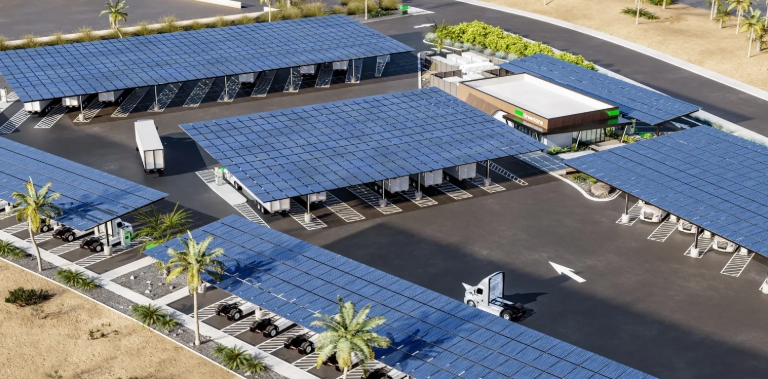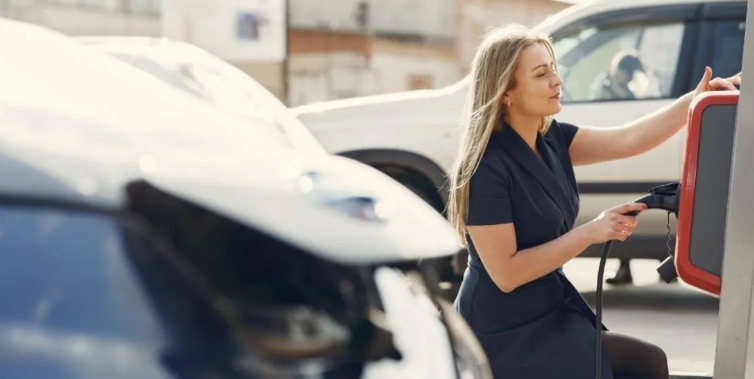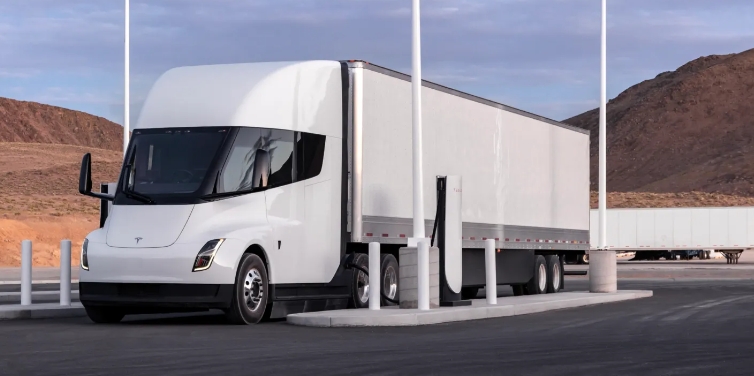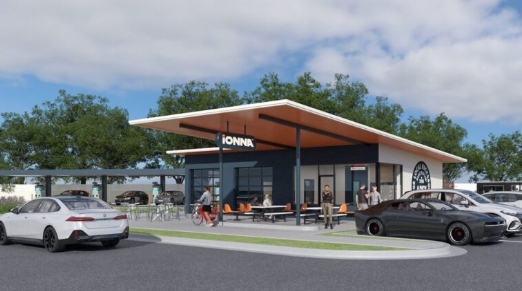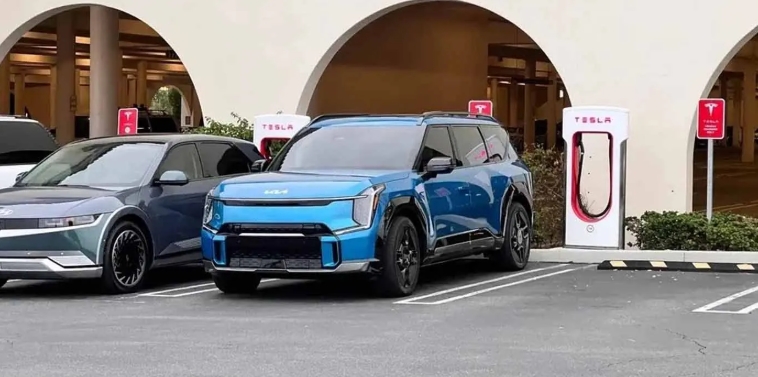A portable EV fast charger from BP charging a Nissan LEAF. Image courtesy BP.
BP wants to create a 10-fold increase in annual low carbon investments in the coming decade, to $5 billion a year by 2030, and it says it is working on its promise of net zero-emissions by 2050. It’s also preparing for a world that uses much less oil, according to CNN‘s reporting on the news.
In a statement, BP said, “This coming decade is critical for the world in the fight against climate change, and to drive the necessary change in global energy systems will require action from everyone.”
BP expects that demand for fossil fuels will fall by 75% over the next 30 years if global temperatures continue to increase. Its head of strategy, Giulia Chierchia, explained to investors that if the increase in global temperatures is limited to 1.5 degrees Celsius, then the demand for fossil fuels will fall drastically. In essence, BP is listening to Snoop Dog’s advice and dropping fossil fuels like it’s hot.
BP stated that its oil and gas production will fall by around one million barrels a day by 2030, which is a 40% reduction from 2019 levels. However, most of its annual capital expenditure for the next 5 years will still be in oil and gas. This is unsurprising — if BP was to just completely stop producing oil and gas, BP could go out of business.
BP CEO Bernard Looney said in a statement, “We believe that what we are setting out today offers a compelling and attractive long-term proposition for all investors.” The company wants to move more into fields such as bioenergy, hydrogen, carbon capture and storage, and EV charging. In terms of finances, it’s reducing its oil and gas portfolio and raising $25 billion for the transition by selling assets over the next 5 years.
In June, BP sold its petrochemicals business to Ineos for $5 billion. BP’s petrochemicals business included 14 plants across the globe that produced 9.7 million tonnes of petrochemical products. These products include plastic bottles that are filled with soda on the shelves of millions of stores, pharmaceuticals, and packaging trays. The International Energy Agency (IEA) predicts that petrochemicals will become the largest driver of global oil demand and will generate more than a third of its growth through 2030 and nearly half by 2050, but BP is out of that game.
BP’s 2nd Quarter Losses
BP reported a loss of $16.8 billion in Q2 of 2020. It still plans to pay out dividends to its investors, but those dividends were cut by half for now — “it plans to keep payouts fixed at that level in future quarters, while promising to return 60% of surplus cash to investors via share buybacks.”
“The board believes setting a dividend at this level takes into account the current uncertainty regarding the economic consequences of the Covid pandemic, supports BP’s balance sheet and also provides the flexibility required to invest in the energy transition at scale,” the company said.
